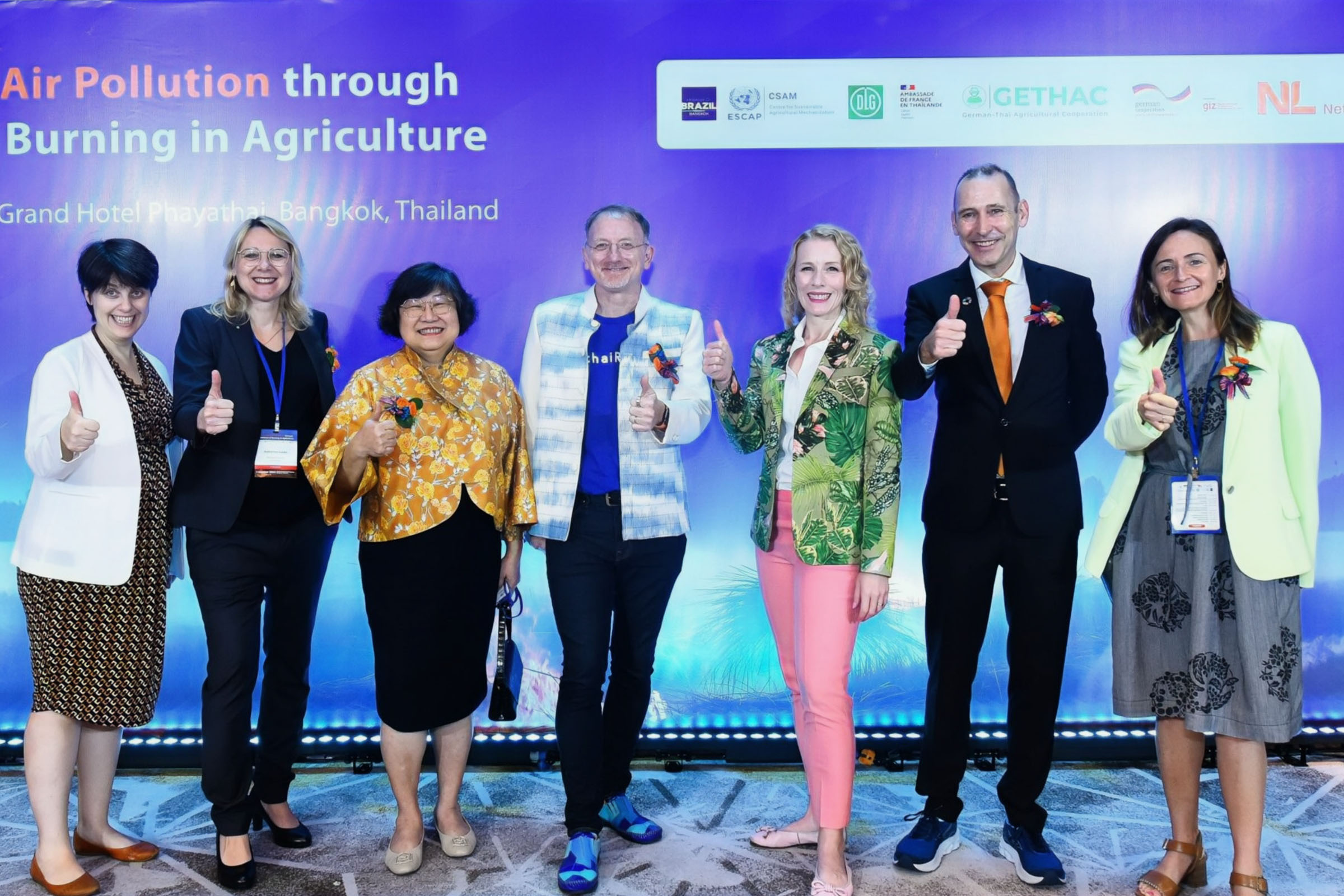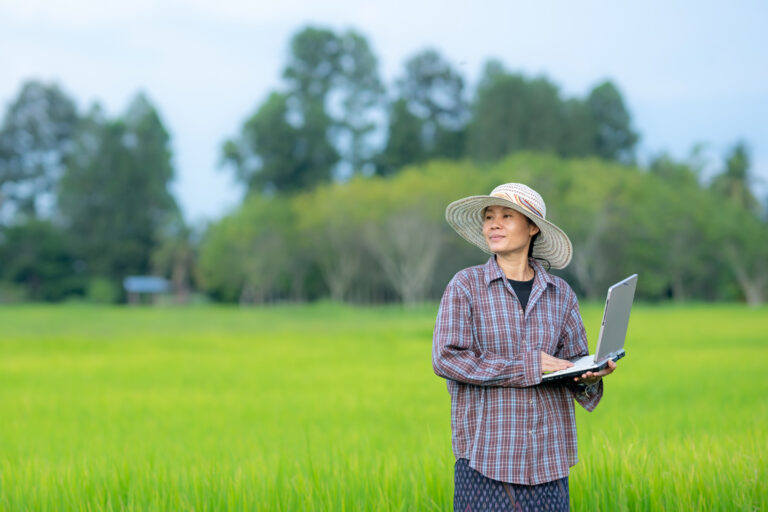
Growing the No-Burn Network: a #thaiRAIN Success Story
No-Burn Conference Expanded #thaiRAIN’s Network
USDA #thaiRAIN significantly expanded its network of leaders and organizations seeking to reduce PM2.5 emissions from open-field biomass burning.
The event made #thaiRAIN a partner of The Friends of Thai Agriculture (FTA), a coalition of international diplomats working in Thailand’s farming sector. In addition to #thaiRAIN, the FTA includes the embassies of the Netherlands, Brazil, and France; the German Agricultural Society (DLG); GIZ Thailand; the UNESCAP Centre for Sustainable Agricultural Mechanization; and the German-Thai Agricultural Cooperation Project of Germany’s Federal Ministry of Food and Agriculture.
More than 250 experts, diplomats, policymakers, and business leaders attended the event to address hazardous emissions from agricultural burning in Thailand and provide alternatives to farmers’ dependency on burning rice, maize, and sugarcane.
The keynote speakers were Prof. Dr. Somporn Chantara from Chiang Mai University, located in one of the hardest-hit areas, and Prof. Witsanu Attavanich, an environmental economist from Kasetsart University.
Dr. Somporn stated that biomass burning is the primary source of PM2.5 in Chiang Mai city. Meanwhile, Prof. Witsanu urged policymakers to implement concrete measures and targets to limit farmers’ burning and restrict unconditional assistance to encourage sustainable practices.
The plenary discussion focused on mechanization and alternatives to burning, soil health innovations, sustainable fertilization, and creating a value chain from crop residues.
Plenary panelists included Martin Gummert, GIZ Thailand’s senior consultant; Arvind Narula, founder of Urmatt; and Dr. Dares Kittiyopas.
Rice Session Cited as the Most Insightful
#thaiRAIN led a breakout session focused on the potential use of microbial decomposers as an alternative to burning rice stubble in paddy fields. The session brought together experts from both the supply and demand sides of the rice input value chain.
Representing the supply side were Dr. Kannika Sajjaphan from Kasetsart University, who presented study results on the efficacy of different microbial powder brands in degrading rice residues; Dr. Wichien Yongmanitchai, the researcher behind “Soil Digest”; and Bond Thaiyanurak, CEO of Agrimomo.
Meanwhile, Dr. Krailert Tawekul, coordinator of the Chi River Program, and Dr. Puangrat Kaewlom, co-founder of Living Soil, represented the demand side, discussing efforts to raise farmers’ awareness.
The rice session produced several key takeaways:
- Microbial solutions offer a practical alternative to burning rice residue while improving soil fertility.
- Enhancing farmers’ access to innovations and strengthening supply chain partnerships are critical to driving adoption.
Participant questionnaire results revealed that the rice session was widely cited as the most relevant and insightful, particularly for its emphasis on microbial remedies as practical solutions for farmers. There was also strong interest in exploring microbial decomposition solutions, especially for rice.
William Sparks, #thaiRAIN’s Chief of Party, stated that the session underscored the importance of multistakeholder cooperation to raise awareness, expand distribution networks, and engage more farmers in implementing sustainable practices to reduce burning.
He added, “[This] conference has been vital in advancing collaborations to stop agricultural burning, not only in Thailand but across Southeast Asia.”
“This conference has been vital in advancing collaborations to stop agricultural burning, not only in Thailand, but across southeast Asia.”
— William Sparks, USDA ThaiRAIN’s project director
The Start of a Closer Cooperation to Reduce Burning
Katharina Staske, Managing Director of DLG Asia Pacific, stated that the FTA conceived the idea of the conference one year ago. The objective was to bring together local and international experts to exchange ideas, share best practices, and initiate new collaborations.
She explained that the conference highlighted the need to connect innovations with farmers and other stakeholders. Moreover, unified efforts are essential for large-scale implementation.
Overall feedback from the conference reaffirmed the FTA’s determination to reduce agricultural burning in Thailand and neighboring countries. The conference questionnaire indicated that participants appreciated the actionable solutions, real-world examples, and business-oriented approaches presented at the event.
The results also revealed that participants would like future events to focus on real-world examples of innovation adoption and partnership building.
Ms. Staske added that the FTA plans to organize follow-up events in the coming years to address agricultural burning.
“Today’s conference marks the beginning of enhanced cooperation to improve air quality in Thailand,” she said. “We encourage everyone to continue these important discussions and to keep fostering the exchange of ideas.”
“Today’s conference marks the beginning of enhanced cooperation to improve air quality in Thailand.”
-Katharina Staske, DLG Asia Pacific’s Managing Director
Related Projects

